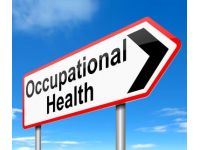
 01708 452000 Login
01708 452000 Login News
Recent News
News by Month
- January 2024
- October 2023
- August 2023
- April 2023
- January 2023
- October 2022
- July 2022
- April 2022
- January 2022
- October 2021
- July 2021
- April 2021
- January 2021
- October 2020
- July 2020
- April 2020
- January 2020
- October 2019
- July 2019
- April 2019
- January 2019
- October 2018
- July 2018
- April 2018
- January 2018
- October 2017
- September 2017
- July 2017
- April 2017
- January 2017
- October 2016
- July 2016
- May 2016
- April 2016
- March 2016
- January 2016
- August 2015
- June 2013
- November 2012
- March 2012
- November 2011
- July 2011
- June 2011
- May 2011
Three Key Priorities Announced in New Health and Safety Executive Strategy

The Health and Safety Executive (HSE) has launched a fresh strategy with the aim of boosting standards in occupational health and reducing sickness absence across the business sector in the United Kingdom.
The Health and Work Strategy consists of three core themes: lung disease; work-related stress and musculoskeletal disorders (MSDs).
HSE chair Martin Temple was at the December 2016 launch event. He commented that stress and MSDs are responsible for 80 per cent of lost working time due to sickness, and that lung disease is responsible for 90 per cent of work-related deaths.
The new initiative is in addition to the Help Great Britain Work Well campaign that launched last autumn and will see the HSE working in partnership with employers, employees and the wider health and safety community with the objective of reducing the number and incidence rate of new cases across the three priority areas.
Work Related Stress
Whilst all industry sectors and business sizes are affected, there are significantly higher incidences in education, finance, local and central government and health and social care. 11.7 million working days were lost to anxiety, stress or depression during 2015-2016 and during the same period in the region of 488,000 workers reported having suffered stress caused or aggravated by work. Through the new strategy, the HSE aims to reduce the number of new cases of work related ill health.
Musculoskeletal Disorders
Whilst for the main part, incidences of MSDs are more likely to occur across the transportation and storage, construction, health and social care and forestry, fishing and agriculture sectors, in reality, any organisation that requires its workforce to carry out any sort of manual or people handling will face the same risk.
The aim of the HSE is to carry out targeted interventions in those sectors and occupations considered higher risk, with the aim of bringing down the number of new cases of ill health caused by work related MSDs.
Occupational Lung Disease
Most industry sectors will be susceptible because occupational lung disease can be caused by a wide range of irritants, from dust, fumes and vapours to biological organisms, asbestos and respirable crystalline silica.
The aim of the HSE is to work alongside employers and the health and safety community at large in order to slow the incidence rate and bring down the number of new cases by improving the control of exposure.
The Commercial Benefits of Good Health and Safety
With good health and safety management comes lower staff replacement and retraining costs; reduced insurance, litigation and compensation risk and boosted productivity and efficiency.
‘The Business Benefits of Health and Safety', a 2014 review by the British Safety Council, revealed evidence that an investment in occupational health and safety can enhance staff morale and organisation loyalty and contribute to an organisation's reputation. The review also highlights research by insurance provider Aviva that shows around 61 per cent of workers said they would work harder for an employer that invested in their health.
If you are looking to rationalise your health and safety processes and are interested in reaping the benefits associated with doing so, please get in touch.




